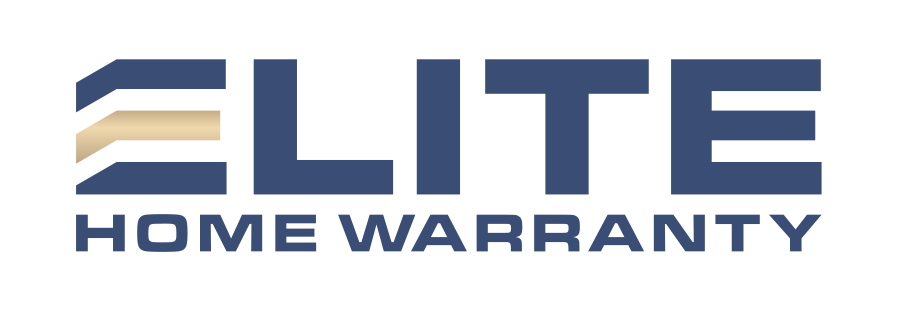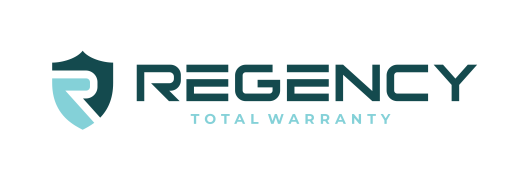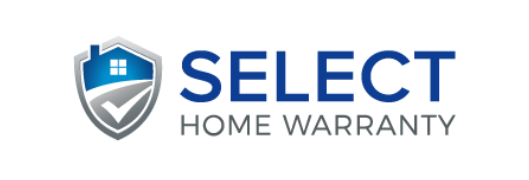Top Debt Consolidation Loan Providers
When it comes to consolidating your debts, many trusted options are available. We’ve provided the best loan providers that offer fair deals to help you handle and combine your debt wisely.
BEST FOR FAST FUNDING
Upgrade
Upgrade
APR Range
8.49%-35.99%
Minimum Credit Score
560
Loan Amount Range
$1,000 to $50,000
Repayment Terms
24 to 84 months
Time to Receive Funds
1 Business Day
Pros
- Its user-friendly online platform makes it easy to apply for a loan and manage your debt consolidation process
- It provides low-credit loans
- It provides long repayment terms on home improvement loans
Cons
- It does not have a wide range of loan types
- It charges late payment fees if you fail to make your payments on time and the origination fee
BEST FOR NO FEES
SoFi
SoFi
APR Range
8.99% to 25.81%
Minimum Credit Score
670
Loan Amount Range
$5,000 to $100,000
Repayment Terms
24 to 84 months
Time to Receive Funds
1 Business Day
Pros
- No fees are charged, providing cost-effective borrowing
- Quick fund disbursement within one business day
- It offers refinance loans in 50 states plus the District of Columbia
Cons
- Requires a relatively higher minimum credit score
- The loan terms, starting from 24 months, are ideal for those seeking short-term loans
BEST FOR BORROWERS WITH LESS CREDIT
Avant
Avant
APR Range
9.95% to 35.99%
Minimum Credit Score
580
Loan Amount Range
$2,000 to $35,000
Repayment Terms
12 to 60 months
Time to Receive Funds
1 Business Day
Pros
- Offers educational resources and guidance to help borrowers make informed financial decisions
- It provides next-day funding
- Additionally, It provides loans to people with less income
Cons
- Avant may charge an origination fee, impacting the total cost of the loan
- Avant charges a late fee of $25.00 for payments not made in full within ten days of the due date
BEST FOR RATE DISCOUNTS
Achieve
Achieve
APR Range
7.99% to 35.99%
Minimum Credit Score
620
Loan Amount Range
$5,000-$50,000
Repayment Terms
24 to 60 months
Time to Receive Funds
24-72 hours
Pros
- Loan amounts accommodate a broad spectrum of financial needs.
- It allows a co-borrower in your application, increasing the chances of your application being approved.
- It has a low minimum APR, as it suggests that even borrowers with strong credit profiles may access competitive interest rates.
Cons
- Not available in all states, restricting access for potential borrowers
- They charge origination fees between 1.99 percent and 6.99 percent.
BEST FOR AI-POWERED CREDIT ASSESSMENT
Upstart
Upstart
APR Range
5.2% - 35.99%
Minimum Credit Score
300
Loan Amount Range
$1,000 to $50,000
Repayment Terms
36 to 84 months
Time to Receive Funds
1 Business Day
Pros
- It provides faster loan approval and funding.
- Maintains transparency regarding its fees
- They require a lower credit score
Cons
- Potentially higher interest rates
- Offers fixed repayment terms of 3 or 5 years, which might not be flexible to all
- It offers an origination fee of 0%- 12% of the target amount
BEST FOR SMALL LOANS
Lending Point
Lending Point
APR Range
7.99% to 35.99%
Minimum Credit Score
600
Loan Amount Range
$2,000 to $36,500
Repayment Terms
24 to 72 months
Time to Receive Funds
1 Business Day
Pros
- Provides customizable terms and loan rates to suit individual financial circumstances
- Accessibility for individuals with low credit scores
- Easy funding process for quicker access to the borrowed funds
Cons
- They charge an origination fee of up to 10%, which may be included in your total loan amount
- Impose late payment fees for borrowers who miss their payment deadlines
BEST FOR NO LATE FEES
Happy Money
Happy Money
APR Range
11.52% to 24.81%
Minimum Credit Score
640
Loan Amount Range
$5,000 to $40,000
Repayment Terms
24 to 60 months
Time to Receive Funds
3-6 Business Days
Pros
- It generates soft credit inquiry, protecting your credit score while exploring loan options
- Access to money management tools to help you better manage your finances
- No application or late fees, reducing the overall cost and making the lending process more cost-effective
Cons
- It charges an origination fee based on your loan amount, term, and credit quality
- Users have no in-person consultations or interactions for their financial needs
BEST FOR PEER-TO-PEER LENDING
Lending Club
Lending Club
APR Range
9.57% to 35.99%
Minimum Credit Score
600
Loan Amount Range
$1,000 to $40,000
Repayment Terms
24 to 60 months
Time to Receive Funds
Not Specified
Pros
- Allows you to choose a repayment plan that aligns with your budget
- Allows to apply for a loan jointly, which can be useful for co-borrowers looking to share the responsibility for loan repayment
- It offers a significant benefit by using a soft credit pull when checking your rate as it does not impact your credit score
Cons
- It charges an origination fee that ranges from 3% to 6%
- While LendingClub offers a broad range of loan options and approval is not guaranteed
BEST FOR LONGER REPAYMENT
Lightstream
Lightstream
APR Range
8.49% to 25.99%
Minimum Credit Score
Not Specified
Loan Amount Range
$5,000 to $100,000
Repayment Terms
24 to 144 months
Time to Receive Funds
Same Day
Pros
- It does not charge any fees
- Allows joint applications, enabling multiple parties to apply for a loan together
- Same-day funding is available, with conditions ensuring quick access to funds
Cons
- Offers unsecured loans, meaning borrowers cannot use assets like a car or house as collateral
- The loan application process involves a hard inquiry on the applicant's credit report, impacting their credit score
BEST FOR LOW APR
Discover
Discover
APR Range
7.99% and 24.99%
Minimum Credit Score
660
Loan Amount Range
$2,500 to $40,000
Repayment Terms
36 to 84 months
Time to Receive Funds
1 Business Day
Pros
- Provides a grace period for late payments, which can benefit borrowers
- Extended 84-month loan term, providing repayment flexibility
- They do not impose any application or origination fees
Cons
- Discover can prolong the time it takes to fully repay your debt, especially if you opt for longer repayment periods.
- Fees and interest associated with consolidation loans can add to the overall cost.
- They charge origination and late fees.
Compare Debt Consolidation Lenders
Explore and compare the features of top debt consolidation lenders to make the right decision for managing your finances.
Lender |
USP |
Apr Range |
Minimum Credit Score |
Loan Amount |
Loan Term |
Time To Receive Funds |
Fees |
|---|---|---|---|---|---|---|---|
| Best For Fast Funding | 8.49%-35.99% | 560 | $1,000 To $50,000 | 24 To 84 Months | 1 Business Day | 1.85% - 9.99% | |
| Best For No Fees | 8.99% To 25.81% | 670 | $5,000 To $100,000 | 24 To 84 Months | 1 Business Day | 0% - 6% | |
| Best For Borrowers With Less Credi | 9.95% To 35.99% | 580 | $2,000 To $35,000 | 12 To 60 Months | 1 Business Day | 4.75% | |
| Best For Rate Discounts | 7.99% To 35.99% | 620 | $5,000-$50,000 | 24 To 60 Months | 24-72 Hours | 6.99% | |
| Best For Ai-Powered Credit Assessment | 5.2% - 35.99% | 300 | $1,000 To $50,000 | 36 To 84 Months | 1 Business Day | 0% - 12% | |
| Best For Small Loans | 7.99% To 35.99% | 600 | $2,000 To $36,500 | 24 To 72 Months | 1 Business Day | Up To 10% | |
| Best For No Late Fees | 11.52% To 24.81% | 640 | $5,000 To $40,000 | 24 To 60 Months | 3-6 Business Days | No Fees | |
| Best For Peer-To-Peer Lending | 9.57% To 35.99% | 600 | $1,000 To $40,000 | 24 To 60 Months | Not Specified | 3% - 8% | |
| Best For Longer Repayment | 8.49% To 25.99% | Not Specified | $5,000 To $100,000 | 24 To 144 Months | Same Day | No Fees | |
| Best For Low Apr | 7.99% And 24.99% | 660 | $2,500 To $40,000 | 36 To 84 Months | 1 Business Day | No Fees |
Further, explore the best credit cards suited for low-income earners and discover options that align with your financial situation and goals.
Factors To Consider When Choosing A Debt Consolidation Loan
When considering a debt consolidation loan, several crucial factors should be considered to ensure it aligns with your financial goals and circumstances:
- Interest Rates:
Pay attention to the interest rates offered for the consolidation loan. Lower rates can significantly reduce the overall cost of repaying your debts. - Loan Terms:
Understand the loan terms, including the repayment period. Longer terms may result in lower monthly payments but could increase the total interest paid over time. - Fees and Charges:
Be aware of any fees associated with the loan, such as origination fees or prepayment penalties. Choose loans with minimal or no extra costs. - Credit Score Requirements:
Check the credit score requirements for the loan. Some loans may require a higher credit score for approval, so ensure your credit meets the criteria. - Total Cost of the Loan:
Calculate the total cost of the loan, encompassing interest and fees over the loan term, using the EMI calculator. Compare this with what you would pay without consolidation to ensure you're saving money. - Additional Features or Benefits:
Consider any additional features or benefits the lender offers, such as financial education resources, flexible payment options, or rewards programs. - Customer Reviews and Feedback:
Read reviews and gather feedback from other borrowers who have used the same lender or loan.
Types Of Debt You Can Consolidate
In financial management, consolidating debt is a smart strategy for simplifying repayments and potentially reducing interest rates. Let’s go through the different types of debt consolidation approaches.
- Balance Transfer Credit Card:
You can transfer high-interest credit card balances to a new card with a lower introductory interest rate for a specific period. - Personal Loans:
A fixed-rate, unsecured loan obtained from a financial institution, typically with a set repayment term and interest rate based on creditworthiness. - Debt Consolidation Loan:
A loan designed to merge multiple debts into one, often resulting in a lower interest rate and simplified monthly payments. - Home Equity Loan or Home Equity Line of Credit (HELOC):
Loans that use your home's equity as collateral, allowing you to borrow a lump sum (home equity loan) or draw from a credit line (HELOC) to consolidate debt. - Debt Management Plan:
A structured program through a credit counseling agency to negotiate lower interest rates with creditors and create a manageable repayment plan for unsecured debts.
Eligibility Criteria For A Debt Consolidation Loan
Some of the factors to consider while selecting a loan are given below.
- Citizenship:
Lenders often require borrowers to be citizens or legal residents of the country where they apply for a debt consolidation loan. - Age and Legal Capacity:
You must be of legal age (usually 18 or older) and have the legal capacity to enter into a loan agreement. - Employment and Work History:
A stable employment history and consistent income from a job or business can enhance your credibility as a borrower. - Income Proof:
The verification demonstrates that you have a consistent and reliable source of earnings. - Credit Report:
Lenders review them to ensure you have a responsible borrowing track record, confirming that granting your application is a low-risk decision on their part. - Debt-to-Income Ratio:
This is assessed to ensure you're not acquiring excessive debt that you may struggle to repay. - Collateral:
Secured debt consolidation loans require you to provide collateral, such as your home or car, as a form of security for the loan. If you fail to make payments, the lender can take possession of the collateral. - Own a Valid Bank Account:
Owning a valid bank account is a fundamental requirement for many financial transactions, including managing a debt consolidation loan.
Steps To Get A Debt Consolidation Loan
Discover how to apply for a debt consolidation loan effectively with the practical steps in this section. From understanding your financial status to optimizing approval prospects, we'll guide you through consolidating debts for a more manageable financial future.
- Evaluate Your Financial Situation:
Understand your present financial state, including your overall debt, monthly income, and expenditures. - Research Potential Lenders:
Compare offers for debt consolidation loans from diverse lenders, including banks, credit unions, online lenders, and peer-to-peer lending platforms. - Compile Necessary Documentation:
Organize essential documents such as proof of income, employment history, credit score, and details regarding your current debts. - Check Your Creditworthiness:
Familiarize yourself with your credit score to grasp the likely interest rates and terms for which you qualify. - Seek Pre-Approval:
Initiate the pre-approval process with several lenders to receive loan offers and assess the terms provided. - Evaluate Loan Proposals:
Review and compare the loan offers, considering interest rates, fees, loan amounts, and repayment terms. - Opt for the Most Suitable Option:
Choose the debt consolidation loan offer that aligns best with your financial objectives and your ability to maintain regular payments. - Finalize the Loan Application:
Supply any additional requested information and complete the loan application procedure as the lender directs. - Consolidate your debts:
Utilize the loan funds to settle your existing debts, merging them into a single, more manageable payment.
Tips For Improving Approval Chances
Here, we have provided some tips to help you enhance your chances of being approved for a debt consolidation loan and secure more favorable terms.
- Ensure timely payment of bills and focus on reducing credit card balances to improve the credit usage ratio.
- Request a loan amount that aligns with your financial capacity to meet repayment obligations comfortably.
- Verify that all information furnished on the loan application is accurate and current.
- If your credit score is less than ideal, contemplate having a co-signer with a favorable credit history to enhance your likelihood of being approved.
- Showcase a consistent work history and a reliable income to assure lenders of your capability to meet repayment obligations.
Can I get a debt consolidation loan with bad credit?
Can I get a debt consolidation loan with bad credit?
Yes, getting a debt consolidation loan with bad credit is possible. However, it may be more challenging, and the terms may not be as favorable. Some options include secured loans, having a cosigner, seeking specialized lenders, exploring credit unions or community banks, or considering debt consolidation programs. I
t's crucial to carefully consider the terms, interest rates, and fees associated with any loan you're considering.
What are my options if I can't get a debt consolidation loan?
If you can't secure a debt consolidation loan, here are some alternative options to manage your debt:
It's important to carefully evaluate each option based on your financial circumstances and goals and choose the one that best suits your needs for effective debt management.
Tips For Managing Debt After Consolidation
After successfully consolidating your debts, responsible financial management is crucial to ensure lasting relief from debt-related challenges. Here are some tips for managing debt after consolidation:
- Budgeting:
Create a detailed budget to track your income and expenses, ensuring that you allocate enough funds to cover debt payments. - Emergency Fund:
Build an emergency fund to cover unexpected expenses, reducing the need to rely on credit cards or loans during financial crises. - Savings:
Develop a savings habit by setting aside a portion of your monthly income, contributing to your financial security. - Avoid New Debt:
Resist accumulating new debt, especially credit card balances. Use credit responsibly and within your means. - Credit Monitoring:
Monitor your credit score and credit reports regularly to ensure accuracy and detect any signs of identity theft or fraudulent activity. - Financial Goals:
Set short-term and long-term financial goals to stay motivated and focused on financial stability beyond debt repayment. - Seek Professional Help:
If needed, consult a financial advisor or credit counselor for guidance on managing your finances effectively and staying out of debt.
Furthermore, explore the use of a credit card payoff calculator to evaluate your journey towards achieving financial stability.
Our Methodology: How We Choose The Best Debt Consolidation Lenders
Selecting the right debt consolidation lender is a critical step in your journey toward managing and reducing debt. We understand that your financial well-being is at stake, and the lender you choose can significantly impact your path to debt relief.
We considered some factors while choosing and reviewing the best debt consolidation lenders.
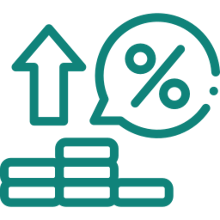
 Interest Rates
Interest Rates
We examined any origination fees, prepayment penalties, and other costs associated with the loans to provide a comprehensive cost analysis.
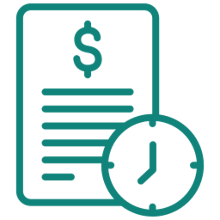
 Loan Terms
Loan Terms
The terms of a loan play a significant role in how manageable your monthly payments will be. We considered the flexibility and length of loan terms.

 Credit Score Requirements
Credit Score Requirements
We assessed the minimum credit score requirements for each lender, making it clear who may be eligible for their services.

 Available Loan Amounts
Available Loan Amounts
We noted the minimum and maximum loan amounts offered, ensuring they align with the needs of different borrowers.

 Application Process
Application Process
We examined the ease and convenience of the application process and the time required for approval.

 Transparency and Disclosure
Transparency and Disclosure
We favored lenders with transparent terms and clear disclosure of information, providing borrowers with complete visibility into the loan terms.

 Customer Support and Resources
Customer Support and Resources
We considered whether lenders offer helpful resources or support to assist borrowers in making informed financial decisions.
Conclusion
In conclusion, selecting the right debt consolidation option is pivotal for achieving financial stability. Each lender offers unique advantages, from accessibility and low fees to competitive rates and innovative approaches. By carefully evaluating individual needs and considering factors like credit score and repayment terms, borrowers can make informed decisions to pave the way for a debt-free future.
Frequently Asked Questions (FAQs)
Here are some of the commonly asked questions:
Is Debt Consolidation A Good Idea?
Debt consolidation has the potential to simplify payments, expedite debt elimination, and lead to savings. However, it’s only sometimes suitable, and it’s crucial to assess your unique situation and financial objectives to make an informed decision about managing your debt.
Do Banks Offer Debt Consolidation Loans?
Banks frequently offer debt consolidation loans, allowing individuals to combine their debts into a single, manageable loan with a fixed interest rate. However, terms and conditions may vary among different banks.
How Much Does Debt Consolidation Cost?
Debt consolidation costs typically include interest rates, which vary based on your creditworthiness, loan origination fees, and potential late payment fees. The total cost depends on the lender, loan amount, and repayment term length.
How Much Of A Debt Consolidation Loan Can I Get?
The amount of a debt consolidation loan you can obtain varies depending on factors like your credit score, income, and the specific lender’s policies. The exact loan amount is determined during the application process.
What Is A Good APR For A Debt Consolidation Loan?
A good APR for a debt consolidation loan typically falls between 5% to 20%, depending on your credit score and financial profile. Low APRs are preferable as they translate to less interest over the loan term, ultimately saving you money and facilitating faster debt repayment.
Do Consolidation Loans Hurt Your Credit?
Consolidation loans may initially impact your credit as they involve a hard inquiry and a new account. However, by reducing credit utilization and improving payment consistency, they often lead to a positive effect on credit scores over time.
Are There Any Risks Associated With Debt Consolidation Loans?
Yes, debt consolidation loans come with risks. While they can simplify debt management, there’s a risk of accumulating new debt if spending habits aren’t addressed. Borrowers must carefully assess costs and fees, as well as the impact of extending the loan term, which may result in paying more interest over time.
Is Debt Consolidation The Same As Debt Settlement?
No, debt consolidation combines multiple debts into a single loan with a new interest rate, simplifying payments.
In contrast, debt settlement involves negotiating with creditors to pay a reduced amount to settle the debt, impacting credit score and taxes.
Should I Use A Debt Consolidation Company Or Do It Myself?
Whether to use a debt consolidation company or manage it yourself depends on your financial situation and comfort level. Doing it yourself may save on fees and maintain control, but it requires discipline and negotiation skills.
A debt consolidation company can offer expertise, handle negotiations, and streamline payments, but it may come with fees and potentially affect your credit.
Is Debt Relief And Debt Consolidation The Same Thing?
No, debt relief is a broader term encompassing various strategies to reduce or eliminate debt. Debt consolidation is a specific debt relief method, involving merging multiple debts into one for easier management, potentially lowering interest rates.
Are There Tax Benefits To Debt Consolidation Loans?
No, there are no specific tax benefits for debt consolidation loans as they are considered borrowed money and not counted as taxable income. Unlike mortgage interest, interest paid on consumer debt consolidation loans is not tax-deductible.
How Long Does It Take To Pay Off Debt Through Consolidation?
The time to pay off debt through consolidation varies based on the loan amount, interest rates, and your repayment plan. Typically, it can take 2 to 7 years, but a longer loan term might extend the repayment duration, affecting the overall time to become debt-free.
Can I Use A Debt Consolidation Loan To Pay Off Any Type Of Debt?
Yes, a debt consolidation loan can be used to pay off diverse types of unsecured debts, providing a single repayment plan for improved financial management. However, it’s important to assess the interest rates and terms to ensure it’s a beneficial financial move.

